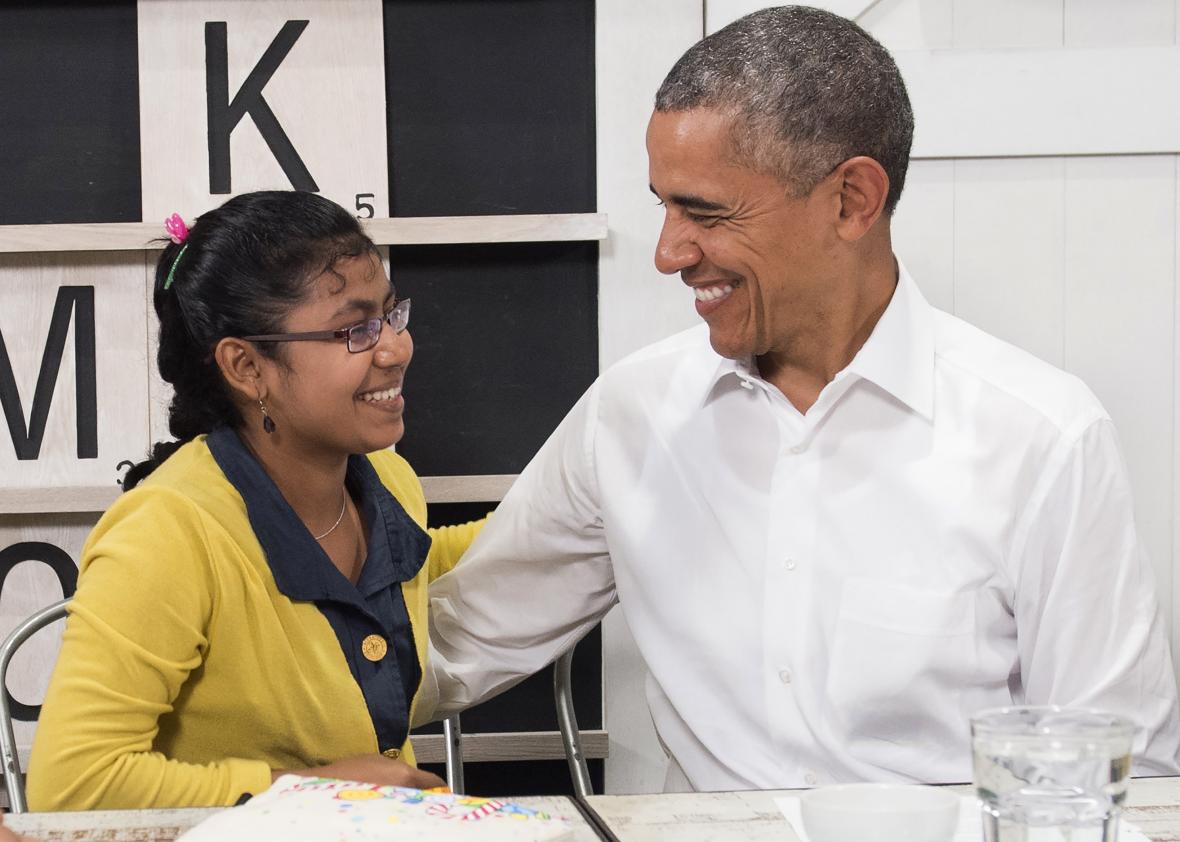President Obama tried to put a human face on the global crisis that has become a political battle back home as he sat down with migrant children in Malaysia on Saturday, vowing that the U.S. would keep its doors open to refugees “as long as I’m president.” Obama met with elementary-school–age children in Kuala Lampur at a humanitarian center who had already been cleared to enter the United States. “They’re just like our kids,” Obama said.
“They were indistinguishable from any child in America,” Obama said. “And the notion that somehow we would be fearful of them, that our politics would somehow leave us to turn our sights away from their plight, is not representative of the best of who we are.” The words were clearly directed at the politicians—including governors, lawmakers, and Republican presidential candidates—who have spoken about the possibility of blocking the arrival of Syrian refugees into the U.S. after the Paris terror attacks.
“You will see the degree to which they represent the opposite of terror, the opposite of the type of despicable violence we saw in Mali and Paris,” the president said. Obama specifically talked about a 16-year-old refugee from Myanmar who was a victim of human trafficking. “This is who we want to help,” Obama said. “This is the face of people around the world who still look to the United States as a beacon of hope.”
The president met with the refugees mere hours after Republican presidential candidates renewed criticism of the White House’s policies on refugees and its strategy to defeat ISIS, notes the Washington Post. At a forum in Iowa, Sen. Ted Cruz said the administration’s refugee policy is “a disaster caused by the Obama–Clinton foreign policy.”
